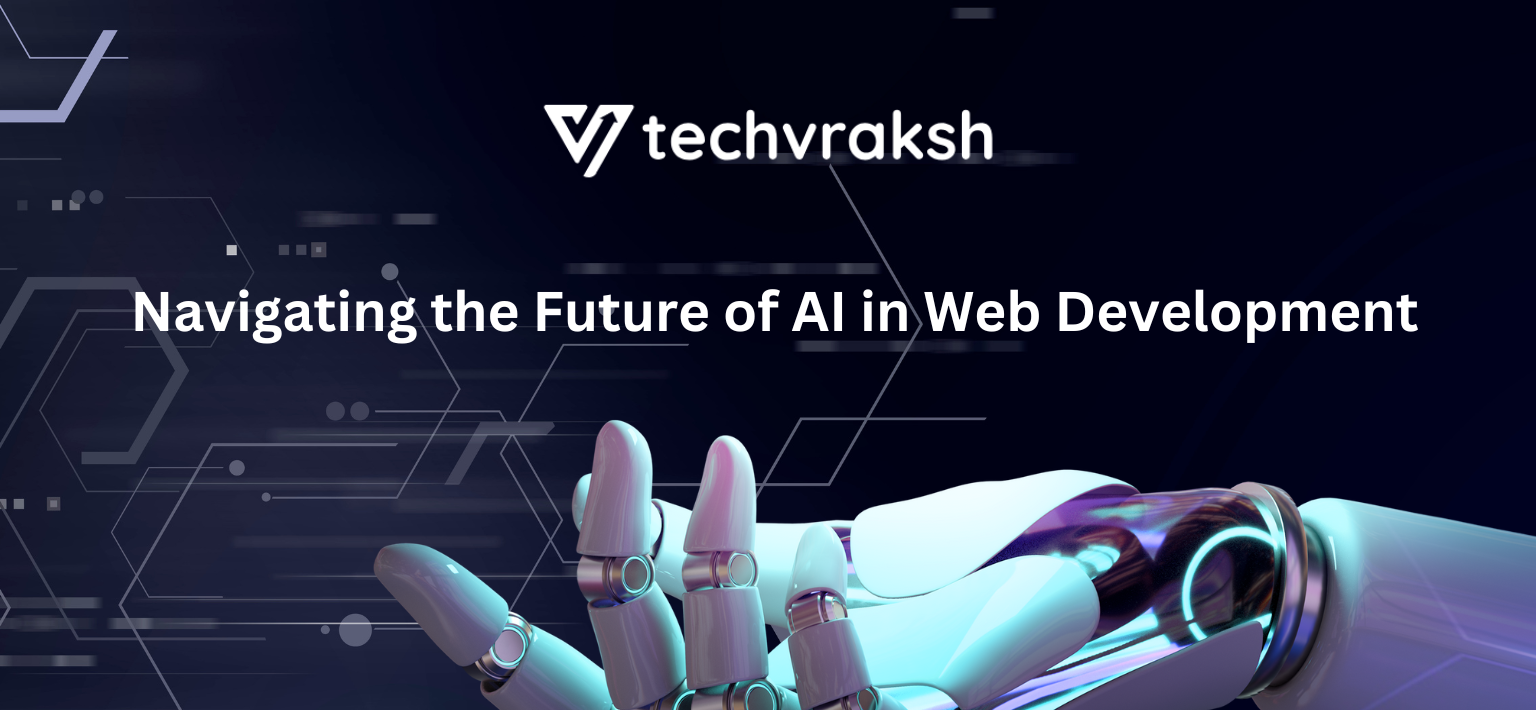Introduction
Artificial Intelligence (AI) has already made a transformative impact on industries across the globe, and web development is no exception. As AI technologies become more sophisticated, they are reshaping the way we design, develop, and interact with websites. From automating mundane coding tasks to enhancing user experience through personalization, AI is unlocking new possibilities in web development.
In this blog, we’ll explore how AI is influencing the future of web development, the key trends to watch, and how businesses can leverage AI to stay ahead of the curve.
1. AI-Powered Web Design and Development
One of the most significant ways AI is transforming web development is through AI-powered design tools. Tools like Wix ADI, Firedrop, and The Grid utilize machine learning algorithms to create websites autonomously based on the user’s input, preferences, and industry standards. AI can suggest design templates, layouts, and even generate content, drastically reducing development time and the need for manual intervention.
AI-driven design helps eliminate human error, enhances efficiency, and allows even non-technical users to build professional-looking websites.
2. Improving User Experience with AI
AI is revolutionizing how users interact with websites by delivering personalized experiences. Chatbots and virtual assistants have become integral to websites, providing real-time support and answering user queries 24/7. AI-powered algorithms analyze user behavior, preferences, and interactions to suggest relevant content, products, or services, thereby improving user engagement and retention.
These personalization engines help create a more tailored and satisfying experience for users, leading to higher conversion rates and increased customer loyalty.
3. Automating Web Development Tasks
AI can assist developers by automating repetitive and mundane tasks, such as code generation, bug detection, and testing. AI-powered coding assistants like GitHub Copilot can help developers write cleaner, more efficient code by predicting the next lines of code, offering suggestions, and even fixing bugs. This not only speeds up the development process but also reduces errors.
Moreover, AI-driven testing tools can perform automated UI/UX testing, ensuring that websites are optimized for all devices and screen sizes. This frees up developers to focus on more complex tasks and creative problem-solving.
4. AI and SEO Optimization
Search Engine Optimization (SEO) is crucial for improving a website’s visibility on search engines. AI plays an essential role in optimizing websites for SEO by analyzing vast amounts of data to identify patterns and trends. AI-powered tools like Moz, SEMrush, and Yoast SEO can recommend changes to improve website ranking, generate keywords, and suggest content updates based on current trends.
Additionally, AI-driven content analysis tools help create content that resonates with both users and search engines, increasing the chances of ranking higher in search results.
5. AI and Cybersecurity
With the growing number of cyber threats, ensuring robust website security is paramount. AI can help detect and prevent cyber attacks by analyzing network traffic and identifying unusual patterns that may indicate a breach. AI-powered tools like Darktrace and Cylance use machine learning algorithms to automatically detect, respond to, and neutralize threats in real-time.
This proactive approach to cybersecurity helps protect websites from attacks such as DDoS, SQL injection, and phishing, making AI a critical asset in securing modern websites.
6. AI in Content Creation
AI is also changing the landscape of content creation. Tools like Copy.ai and Jasper use AI to generate blog posts, product descriptions, and even marketing copy. These AI-driven content generators can analyze existing data and trends to create highly relevant content for your target audience.
While AI-generated content may not completely replace human writers, it can significantly reduce the time required to create content, allowing developers and businesses to focus on strategy and execution.
The Future of AI in Web Development
As AI technologies continue to evolve, the future of web development will likely see more advanced AI systems capable of predictive design, autonomous coding, and hyper-personalized experiences. AI will increasingly blur the line between design and development, empowering teams to create more complex, scalable, and efficient websites.
The ability to harness AI will become a competitive advantage for businesses looking to enhance their digital presence. Companies that invest in AI-powered web development tools today will be well-positioned to thrive in tomorrow’s digital landscape.
Conclusion
AI is reshaping the web development industry, from automating coding tasks to enhancing user experiences with personalized content and interactions. As these technologies advance, businesses that embrace AI in their web development processes will gain a competitive edge, driving innovation and customer satisfaction.
At TechVraksh, we are excited about the potential of AI to redefine the way we approach web development. Our team stays at the forefront of these advancements, leveraging AI to deliver efficient, secure, and engaging web solutions for our clients.

